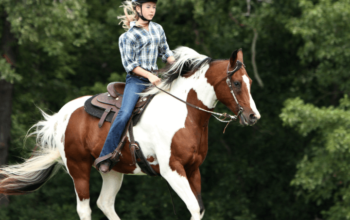
Horses have long been revered for their strength, beauty, and grace, but their therapeutic benefits are increasingly being recognized in the field of healthcare. Equine-assisted therapy and rehabilitation programs offer a unique and effective approach to addressing a wide range of physical, emotional, and mental health issues. In this article, we’ll explore the healing power of horses and the role they play in therapy and rehabilitation.
Equine-assisted therapy can be highly beneficial for individuals recovering from physical injuries or living with chronic conditions such as multiple sclerosis, cerebral palsy, or spinal cord injuries. The rhythmic motion of horseback riding stimulates the core muscles, improves balance and coordination, and promotes strength and flexibility. As riders learn to control their movements and communicate with the horse, they also develop motor skills, spatial awareness, and proprioception.
In addition to the physical benefits of riding, interacting with horses can have therapeutic effects on the body. Grooming, feeding, and caring for horses can help improve fine motor skills, hand-eye coordination, and manual dexterity. The tactile sensation of touching a horse’s soft coat or feeling its warm breath can also provide sensory stimulation and promote relaxation.
Horses have a remarkable ability to connect with humans on an emotional level, offering comfort, support, and unconditional acceptance. For individuals struggling with mental health issues such as anxiety, depression, or post-traumatic stress disorder (PTSD), the bond formed with a horse can be incredibly healing. Horses are non-judgmental and empathetic creatures, and they have a unique ability to sense and respond to human emotions.
Equine-assisted therapy provides a safe and supportive environment for individuals to explore their feelings, express themselves, and develop coping strategies for managing stress and anxiety. Interacting with horses can help boost self-esteem, build confidence, and foster a sense of empowerment. The bond formed between horse and rider can also serve as a source of companionship and social connection, reducing feelings of loneliness and isolation.
Equine-assisted therapy can also be beneficial for individuals with cognitive or behavioral challenges, such as autism spectrum disorder, attention deficit hyperactivity disorder (ADHD), or traumatic brain injury (TBI). The structured environment of the barn and the predictable routines of working with horses can help individuals with cognitive impairments feel more grounded and secure.
The sensory-rich nature of interacting with horses can also stimulate cognitive function and promote learning. Activities such as grooming, tacking up, and navigating obstacle courses require problem-solving skills, spatial awareness, and executive function. As individuals learn to communicate with their horse and navigate their environment, they develop important life skills such as decision-making, assertiveness, and emotional regulation.
In summary, horses have a remarkable ability to heal and inspire, offering a unique form of therapy and rehabilitation that can benefit individuals of all ages and abilities. Whether it’s the physical benefits of horseback riding, the emotional support of bonding with a horse, or the cognitive stimulation of engaging in equine-assisted activities, horses have a profound impact on the lives of those they touch. As equine-assisted therapy continues to gain recognition and popularity, it promises to play an increasingly important role in promoting health, healing, and well-being for people around the world.


